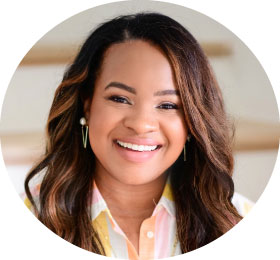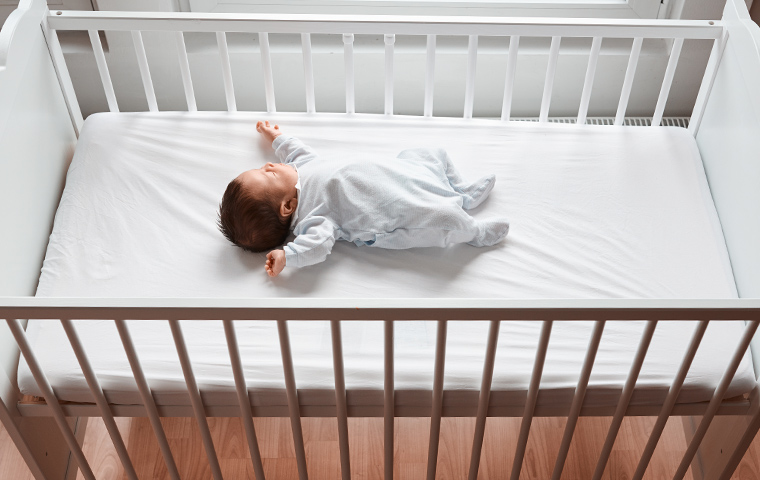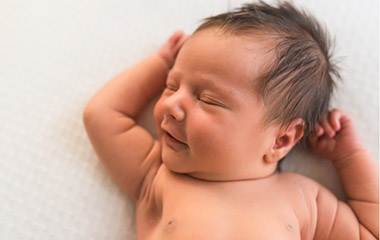Hi! I'm Taryn Newton. I am married to my husband, Rick, and a mom to four sons: Cameron, Calvin, Cyrus, and Cashton. I'm completely outnumbered in my house full of boys but wouldn't have it any other way.
I had my first son when I was 20, while still finishing college. Through trial and error, I have evolved and grown with each child. I've tried to parent my four boys the best way that I can, and every pregnancy and every child has been different. I've had pregnancies that have been a breeze and tough ones where I had to navigate having gestational diabetes. While learning how to be the best version of a mother I can be, safe sleep for babies has always been so important to me. I like to use my free time (when I can get it) to read articles on this topic. They always have the latest updates on newborn and infant sleep.
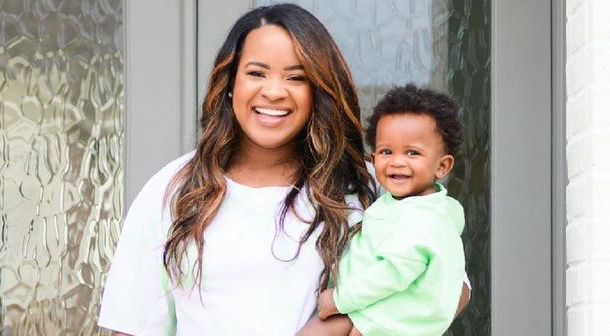
Safe sleep is important to me because my children's safety is my number one priority. I want to have peace of mind knowing that when I lay my boys down, they are safe. That is why my family practices safe sleep for infants.
Another thing that has always been important to our family is keeping all our boys on a sleep schedule. This has helped them have a restful sleep each night. And of course, not every day is perfect, but we try to keep our boys on a consistent routine. Having a baby sleep schedule has helped us stay consistent with sleep training and safe sleep practices. It's been great for the boys and for us as parents.
I want every mom to have peace of mind when it comes to safe sleep. If there is any way for me to share what I've learned in my 13 years as a mother to help another mom, I gladly will. So, I have gathered some guidelines that I follow when it comes to safe sleep. Again, having peace of mind is so important, and that's why I educated myself more about safe sleep. I hope this information will help you too.
Need parenting help now?
The Texas Parent Helpline is available 24/7.
- Call 833-680-0611
- Chat with us
- Text 833-680-0611
Benefits of room-sharing
With all the boys, Rick and I practiced room-sharing. Room-sharing is when the baby sleeps in the same room with you in their crib or newborn bassinet, but not in your bed. With Cashton, we had him in a baby bassinet that sat beside the bed in our room until he was six months old. We did not co-sleep. I know it can be so hard to resist snuggling up with your new baby and falling asleep, but co-sleeping has many risks. These dangers can include suffocation, entrapment (the baby getting stuck in a position and unable to breathe),and overheating from a parent's body heat. I loved room-sharing because I was able to be close enough to hear Cashton and respond to him quickly when he needed something. I felt at ease knowing he was in a baby co-sleeper right next to us.
It made me happy knowing I could have Cashton near me while still practicing safe sleep. The Centers for Disease Control (CDC) recommends that parents room-share with babies until they are between six months and one year of age. After Rick and I felt Cashton was ready to be alone in his nursery, we moved him over. Our goal was to have the transition be as smooth as possible. And we continued to follow the CDC guidelines when we transitioned Cashton into his nursery, following safe newborn crib practices and other tips that I'll cover later in this article.
The CDC recommends that you room-share until your baby reaches between six months and one year of age.
Are pacifiers right for my baby?
Some babies are not too fond of pacifiers – but all of my boys liked them. We introduced Cashton to a pacifier after he was well-latched and comfortable breastfeeding. We didn't want the pacifier to confuse him as we both were learning how to manage breastfeeding in the early days. According to the National Institute of Health (NIH), pacifiers can help reduce the risk of Sudden Unexpected Infant Death (SUID). If you use a pacifier, it is important there are no attachments.
When to stop swaddling your baby?
Swaddling Cashton helped us immensely. We swaddled him up until he showed signs of trying to roll over. We immediately stopped swaddling at that point and had a smooth transition. Every baby can be different when it comes to trying to roll over, so just make sure to keep your eyes open for signs of increased mobility or attempts at starting to roll over. I have to give my husband credit. He's mastered the science of swaddling a newborn.
A baby should be alone and on their back in a crib.
Making sure Cashton's crib met all CDC recommendations was also important to me. The mattress, with a fitted sheet, was the only thing in his newborn crib. We had no bumper pads and no stuffed animals. You can also check to see if your current crib, newborn bassinet, or playpen has had any recalls on the Consumer Product Safety Commission (CPSC) recall list website.
Always make sure to lay your baby down on his (or her) back in an empty newborn crib. It is important to do this at all times, including at bedtime or for naps. We also made sure to keep Cashton's room cool. We dressed him lightly and never put a hat on him when he was sleeping. Any objects that can become loose in the crib can be dangerous.
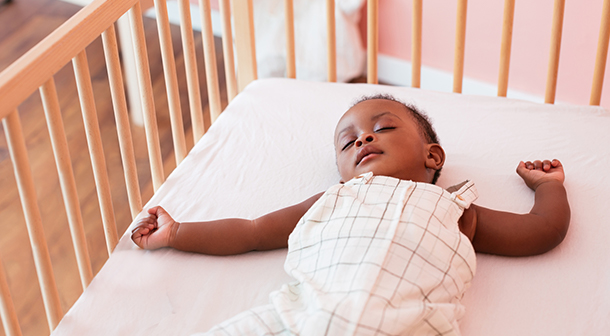
Check the Consumer Product Safety Commission website to see if your baby's crib, bassinet, or playpen has any recalls.
Room-sharing makes breastfeeding easier.
When it comes to breastfeeding, I know how exhausting those long nights of cluster feeding can be. You just want to latch your baby on and take a quick snooze while they eat, but it's important to stay awake and put them back in their newborn crib once they are finished feeding. I breastfed Cashton and made sure to place him back in his newborn bassinet as soon as he was finished or when I felt myself wanting to fall asleep. I didn't want to risk him falling off the bed or getting stuck in bed with us. Room-sharing really helped me in our breastfeeding journey. It was so much more convenient being able to put his bassinet next to me rather than going upstairs to his nursery.
Moms need and deserve a support system.
Finding a support team when I started to feel overwhelmed or stressed was key. I had a great support system with Rick and my mom. We tackled newborn baby sleep by working as a team. I know both parents may be sleep deprived, especially with a fussy baby at night, but remember you are on the same team – you'd be surprised how easy that is to forget when you're exhausted. When I was able to pump, I would have a bottle so Rick could do a nighttime feeding and I could get a couple extra hours of sleep. Don't feel embarrassed or ashamed to reach out to those in your support system when you're having a rough time. It's normal, and we've all been there as moms. And remember that it too shall pass. You have to stay connected to your community to be supported through this season of life.
I hope these guidelines help you and give you some insight into newborn sleep. You can ask your pediatrician questions or read The ABCs of Safe Sleep article on this website.
The first year of motherhood will definitely be one of the most rewarding times of your life, but there will also be challenging moments. Remember that you can do this, and you are not alone. Just do the best that you can, and don't be afraid to get educated on the areas you want to learn more about and ask for help when you need it.


